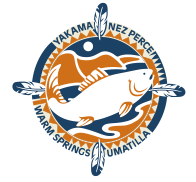Sovereignty consists of two parts: 1) the ability to make rules and laws and 2) the ability to enforce those rules and laws. If either of those is reduced or lacking, the sovereignty of that nation is somewhat diminished. This is why it was so important for the tribal leaders of the four tribes to establish CRITFC Enforcement back in 1980. By exerting the right to enforce their own laws, the tribes not only demonstrated their own sovereignty, they indicated to state enforcement agencies that the tribes were capable of and willing to police themselves. In the 33 years since CRITFC Enforcement was created, the tribes have shown that they are not only interested in protecting their natural resources, they are interested in protecting their sovereignty. Without enforcement on the river, state enforcement presence would increase dramatically.
When CRITFC was founded 36 years ago, it was with the idea of not only protecting and restoring the salmon, but also protecting the tribal treaty right to harvest and manage that important natural resource. Back in 1977, those leaders from the four member tribes saw the power in combining their efforts, and in the years that followed, their wisdom has benefitted the tribes well.
Going back to the CRITFC records from the 1970s, the topic of tribal sovereignty comes up time and again. Those leaders knew, as the tribal leaders do today, that sovereignty is the key to tribal self-determination and the preservation of tribal culture. I am so thankful for the leadership of the tribes. It is an honor for me and all the staff at CRITFC to serve the four Columbia River treaty tribes in their efforts to protect salmon and treaty fishing rights.
